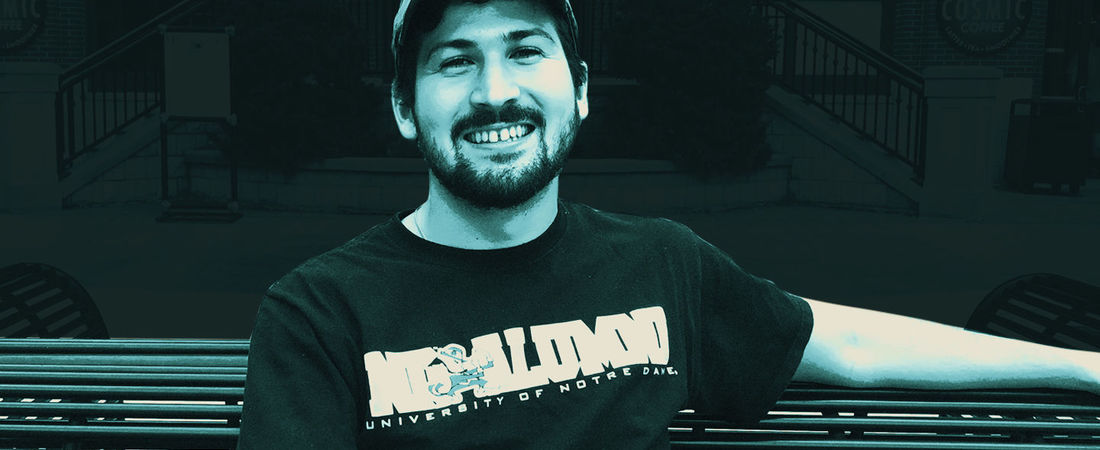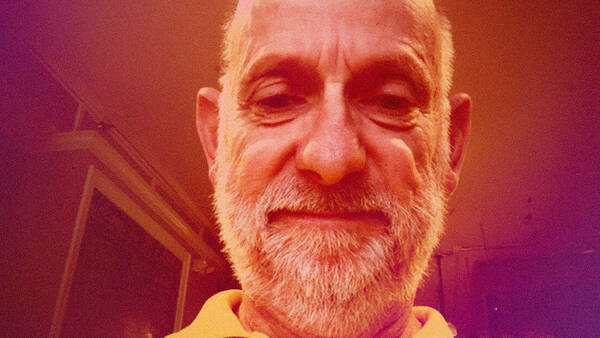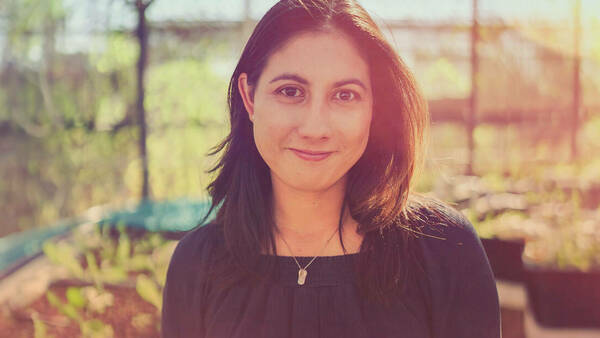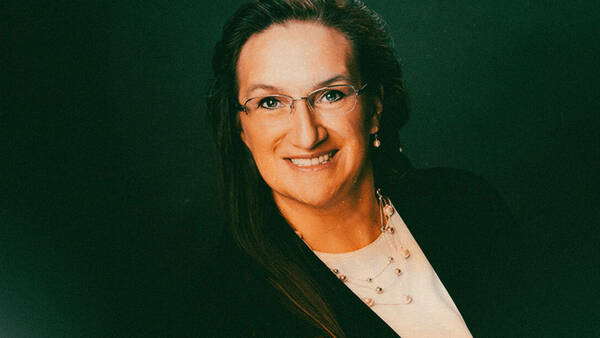Six months into his job at a therapeutic residential foster home, Frankie Wamsley ’17 had seen enough fights and bullying to wonder whether he could really make a difference.
When he started at the Tampa facility after graduating from Notre Dame, he had high hopes. But months later, he found himself emotionally depleted by the harsh realities of the place, which housed everyone from eight-year-olds to pregnant teens.
The atmosphere, he says, could swiftly turn from “kiddie playground” to “kiddie prison.” One hour, children might enjoy a friendly game of tag or an outing to play laser tag. The next, they might be punching each other.
“You go into working with kids thinking, I’m going to help these kids out, I’m going to talk to them about their dreams and goals, and you spend most of your day preventing fights,” Wamsley recalls. “There were some days where I thought, I just want to get through this day without any of my kids getting hurt. And I wasn’t always able to accomplish that.”
The experience took its toll, and a burned-out Wamsley tendered his resignation. But it helped pave the way for where he is today: working toward a career that will allow him to make a lasting difference for families and children who might otherwise fall through the cracks.
A Passion for Helping Children
Wamsley traces his interest in helping children to his own childhood. His parents divorced in 2005 and had joint custody, so he and his younger brother went back and forth between them.
“I learned a lot about family conflict, about the court system, about what it means to grow up in a family affected by divorce,” he says. “That made me want to give back some day to kids of future generations growing up in a divorced family, because there’s just a lot of hoops you have to navigate and emotional stuff you have to adapt to.”
Wamsley took a psychology course his senior year in high school that further piqued his interest. At Notre Dame, he majored in psychology and took several peace studies courses, a combination that showed him how people can communicate and resolve conflicts—whether at the international level or within families.
Wamsley also worked as a lab assistant at the William J. Shaw Center for Children and Families, and he saw how families, including those dealing with disabilities, handled conflict and encouraged communication. And as part of a class during his senior year, he mentored a nine-year-old boy in foster care. There, he saw how easy it was for children to fall through the cracks. The boy developed behavioral problems at school after his relationship with his foster mother soured, and he was sent to live with an aunt. His caseworker left, and the new one couldn’t seem to provide Wamsley with updates on how the boy he was doing. That experience reaffirmed Wamsley’s desire to make a difference.
A Challenge and a New Start
Working at the Tampa facility was an eye-opening experience. Wamsley oversaw a cottage that housed boys and girls ages eight to 12 who arrived with a variety of challenges. Some experienced cognitive delays or behavioral issues as a result of past abuse. To top it off, Wamsley says, administrators worked limited hours, and caregivers were left to deal with bullying and fights.
“My expectations for what I could do as a foster care giver at a group home just kept getting lowered and lowered,” he says. “I went in thinking I really want to look after the psychological wellbeing, the emotional security, and the happiness of these kids. All those things just got dashed.” And as the months wore on, Wamsley experienced anxiety, depression, and burnout.
So he resigned, and went to work for his mom’s wedding rental business in Tampa while he decided what to do next. And he wondered whether he had chosen the right path: “There was a ton of self-doubt. I doubted that I was someone who could work in the mental health field. I thought, maybe I’m not cut out for it.”
But after talking things over with family, friends, and former colleagues, Wamsley says, he realized he had just been in a bad situation. And he could still find a way to do good in his chosen field.
Making a Difference
“I got the affirmation I needed from my friends and family and coworkers,” Wamsley says, “and then realized, I’m going to keep going with this, but I’m going to get my master’s degree because that’s going to help me have more autonomy, and that’s going to give me the skills and self-care strategies that I need to be successful at my next endeavor.”
Wamsley enrolled in the Master of Social Work program at the University of Cincinnati in the fall of 2018. Classes have helped him build skills and broaden his perspective, and an internship with the Higher Education Mentoring Initiative has allowed him to once again work with foster youth—this time by helping ensure they get the support they need to graduate from high school and pursue post-secondary education or training that will allow them to succeed.
Now, Wamsley says, he is once again excited about using his skills and passion to give back.
“I really feel like foster care is something that is just going to keep pulling on my heart. I feel like there’s just such a need,” he says. “The people outside of it don’t pay attention to it or don’t always care enough to get involved, and people involved are so overworked because there’s not enough people to do the job that needs to be done.”
After he graduates, Wamsley says, he wants to work for a school or nonprofit. Down the road, he hopes to help advise and shape public policy. Good policy can help give foster care workers the resources they need, he says, and can also help meet the mental health needs of foster children and empower them to become advocates for themselves.
And although most people won’t work in the foster care system, Wamsley believes everyone has a role to play in helping foster children succeed.
“It’s bigger than any one person,” he says. “It really takes everyone. I think it’s on all of us to do what we can. And nobody has to do everything, but everyone can do something, whether that’s volunteering, whether that’s donating—everyone can do something.”



